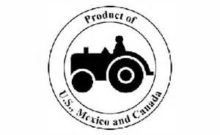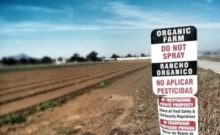 There has been a lot of concern lately over the quality of imported goods. Even non-food items have caused health issues and major concerns for consumer safety. Outsourcing manufacturing has been a longtime practice since the manufacturing costs in other countries are much cheaper than in the United States. But is it really good business when people are getting sick from the difference in safety measures? What can we do to protect ourselves?
There has been a lot of concern lately over the quality of imported goods. Even non-food items have caused health issues and major concerns for consumer safety. Outsourcing manufacturing has been a longtime practice since the manufacturing costs in other countries are much cheaper than in the United States. But is it really good business when people are getting sick from the difference in safety measures? What can we do to protect ourselves?
Food Safety Has Improved, But Still Far From Perfect
We have mentioned food-borne illnesses in the past (find our posts here and here). While a fair portion of food poisoning comes from meats there is an increasing amount of reports of illness from produce! Most people read their food labels and just assumed the labels are honest. Haddock is haddock and salmon is salmon after all…isn’t it? Finally, DNA research was done and we were informed that our haddock was not haddock at all. Our tilapia was not tilapia, but was a mix of other fish. One solution to false labeling was to assign bar coding to imported fish. This did improve our ability to tell where our fish was coming from and if it was actually identified properly. However, this did nothing to ensure that the food was safe. It only allows us to know that we are indeed eating the type of seafood we saw on the label.
Chinese Imports Are Just One Example
An increasing amount of our food imports are coming from China — and with recent health issues, we are going to examine issues with China’s imports and free trade.
“In 2009, 70 percent of the apple juice, 43 percent of the processed mushrooms, 22 percent of the frozen spinach and 78 percent of the tilapia Americans ate came from China,” (Food & Water Watch, 2011).
Other developing nations don’t have the same safety standards as the United States. Free trade laws and a limited number of inspectors allows for these imports to go largely unchecked. One example is the lead and melamine that have been found in food products, tableware, toys, cosmetics, vitamins, and jewelry coming from China. An alarming amount of contaminated products are food or nonfood items that are targeted for children. Still, the United States is not free and clear of guilt when it comes to contaminating our own food.
It’s Not Just China
Before you start thinking that China has just “got it in for us,” consider the recent food recall on caramel apples. NBC and the CDC reported in November about three separate companies that used California apples for producing caramel apples. All three companies recalled their caramel apples due to listeria contamination! This shows that contamination and toxins happen everywhere, not just abroad. Even in my own garden I have to be careful. I don’t use any type of weed or pest chemicals, but my neighbor does. If the wind were to blow just right while they are spraying their tomatoes, mine could also be affected. (These chemicals are all approved by the FDA and the USDA, but this doesn’t make them safe!) This is why food washes are so important! It’s not just about rinsing something with a little water or peeling your vegetables. Once you’ve touched the produce you have these substances on your hands and you are cross-contaminating everything you touch. What’s worse is that these chemicals are not just easily rinsed with water and patted dry. (The rain would do the job for us if that were the case!) We need a product that will break down the toxic substance and not just get it wet. We need a product like iGOZEN that won’t add to our already toxic world.
Application & Resources for Food Safety
- Read more from the Washington Times on the dangers of imported goods from developing nations
- Go to the FDA’s site for information on how they determine what is safe
- Check out Forbes reporting on Lead in toddler cold medicine
- Discover what Seattle had to deal with when 1700 imported children’s shoes arrived
- Learn more about barcoding from org
- Final tip: don’t heat plastic and avoid it altogether if possible. Try to buy USA made items if you are concerned about imports and if possible make your own home remedies.


